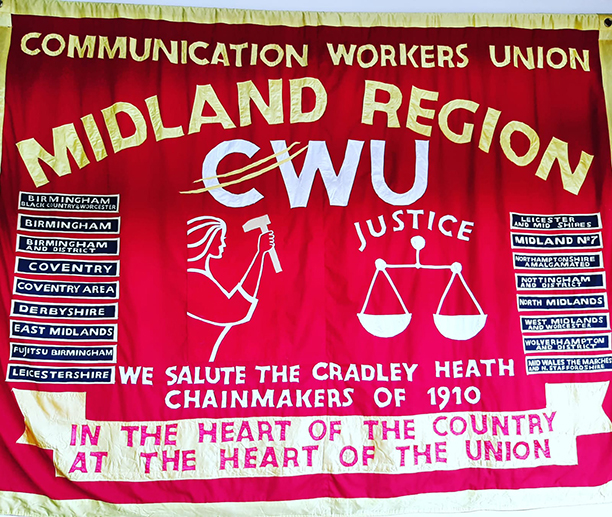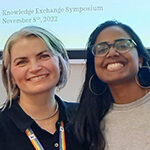Members of the Journey to Justice team delivered a workshop on racial and economic justice to the Communication Workers Union (CWU) in Birmingham (Feb 2022).

Using our unique approach to social justice and human rights education, the CWU regional leads were invited to consider the present day challenges and injustices facing their membership through an historical lens. We presented participants with lesser told stories of collective and individual action from our Archives of Activism: our civil rights exhibition (www.jtojhumanrights.org.uk/) and economic injustice sites (www.economicinjustice.org.uk).
As an important element of the work we do is finding the common ground of experience of Black, brown and white workers, the stories and analyses we shared spoke to the common experience of inequality in our society, in addressing which solidarity can develop. The team introduced the CWU leaders to trade union histories in Newcastle, anti-apartheid activism in Leicester, LGBT rights in Nottingham, and anti-racism action in Tower Hamlets. We included stories from Birmingham such as the women from the Supreme Quilting clothing factory, where 300 Asian women machinists took action in 1982 following the sacking of two male colleagues when they were found to be recruiting for the Transport and General Workers Union. The story of Sonya Hundal’s parents provided a good example of trade unionism and effective campaigning. Her parents were members of the Indian Workers Association, known for its campaigns to protect the rights of early immigrant workers in the 1950s and 1960s and Sonya talks about how many migrants overcame tremendous hardships and how strong the trade union movement made them.
The Journey to Justice team also included activities to get people moving and thinking about campaigning. We showed the story of the People’s Empowerment Alliance for Custom House (PEACH) who successfully campaigned to return the properties to council ownership and secured rent reductions for all. We asked participants to think about why the tactics PEACH used were successful or not and to talk about a successful/unsuccessful action of their own. Following this, we showed the story of The Advocacy Academy team of young people who took part in creative direct action to tackle the local housing crisis in Brixton, South London. CWU leads were asked to draw on this story and role play being either an activist working to prevent the closure of a park or a councillor explaining why it is needed. The activity elicited a lot of ideas from both sides and a lively debate.
After a deep dive into the ways the legacy of colonialism is still impacting workers’ conditions and pay in the UK today, led by ideas from Prof. Gurminder Bhambra and Prof. Sir Michael Marmot, we turned to a discussion around the function of the arts. Using clips from our Train the Trainers events, the Door-to-Door Poet, Rowan McCabe, Chris Chalkley’s arts-as-activism in Bristol, Prof. Helen Storey’s work with the Tiger Girls in the Zaatari refugee camp, and Jane Wheeler and Keith Hodgson’s stories about the power of song, participants thought about the power of the arts in campaigning.
It was a successful day with participants deepening their knowledge of racial and economic injustices, how these relate to present day challenges and inequalities, the use of non-violent tactics and the arts to address these, and in-depth explainers focused on the structure of the society and the economy.
The Journey to Justice team are back in Manchester in mid-March to take part in a national CWU training residential.
“The CWU were delighted to finally get in a room with representatives from Journey to Justice. The session itself was really informative and engaging. The work that JtoJ does resonates very strongly with our own Union’s aims as we continue on our own journey to connect positively with different communities. We are a trade union proud of our traditions and the fact that we have union reps in pretty much every single workplace. Many of our union reps and members will already be heavily linked in with community projects. Developing our relationship with JtoJ will help us and our reps to help those communities that our members already serve.”
Kate Hudson, Head of Equality, Education & Development




